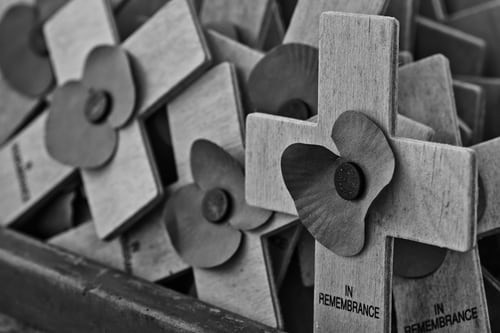Emergency services workers and war veterans are often exposed to highly stressful and traumatic situations at the frontline to protect and ensure the safety of the public. They are regularly put in life-threatening or high-stress situations such as natural disasters, serious accidents, life-threatening conflicts or even war. Everyone involved will have a different response to the traumatic event depending on their life experience, however, it can significantly impact the mental health and wellbeing of a person, which can affect their ability to function effectively at work and has a ripple effect on families and personal lives.
Some people may experience triggers from an event, or multiple events, to past experiences and others, may experience burnout from the continued hyper-aroused, adrenaline flow state they are required to be in during these incidents to perform their work.
Mental health concerns may occur after a single, acute trauma, however, it is most often an accumulation of events or experiences that push emergency services workers and war veterans to their coping limit. This could also include stress from not just the frontline work, but also areas being under-resourced or not wanting to let colleagues down. Without realising, unprocessed traumatic events and high-stress situations can build up over time and may generate symptoms of Post-Traumatic Stress Disorder (PTSD). This may include having recurring thoughts or memories from the frontline, difficulty concentrating, thinking clearly or remembering, trouble sleeping or feeling disconnected from family and friends. Shifting focus from work-life to reintegrating back into personal/family life can be an especially hard transition for some people.
In Australia, we also have a strong volunteer base that helps support our emergency services. Volunteers are often subject to the same traumatic events that full-time emergency services workers are, however, these volunteers are often part of small communities, which can make it more likely for them to know the people in these situations and they are often not provided with the amount of training that a full-time, paid emergency services worker is.
It may be easier for a volunteer to leave if they feel their mental health is being affected by the work, however, this will often remove them from the mental support that may be required for them to process what they have been through.
According to Beyond Blue Police and Emergency Services study 2018, emergency services employees have more than double the rate of having probable PTSD than the general population, with volunteers just slightly above the average.
It is not uncommon for war veterans to have experienced multiple traumatic events throughout their deployment. This could include witnessing someone badly injured or killed, seeing a dead body, accidentally injuring or killing another person, exposure to real or threatened death, in addition to interpersonal traumas such as rape, domestic violence, being kidnapped or held captive. The veterans may also find themselves reflecting and reliving the acts of violence they may have committed during deployment which may be distorting their view of self and their values.
At the Australian Trauma Support Centre, we specialise in supporting people affected by trauma. We can support you through this and provide ways to assist you with the emotional trauma experienced. If you are finding yourself struggling to cope after a traumatic event, please get in contact with us, your GP. You are not alone and you do not need to keep feeling like this.



